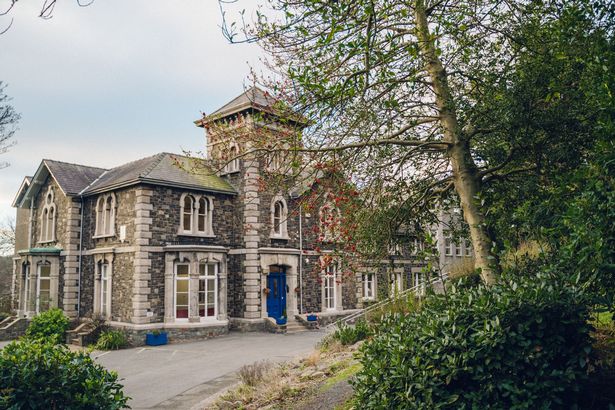Small independent schools in Wales face “overnight closure” under new VAT rules, a headteacher has warned. Campbell Harrison said many small fee charging schools make scant or no profit and raising fees could ruin them, prompting an exodus of pupils into the already over-burdened state sector.
The private day school he runs, St Gerard’s School Trust in Bangor, charges between £10,000 and £15,000 a year for its 100 pupils aged four to 18. Most parents who send their children there are not rich and save on other items like cars and holidays to do so, Mr Harrison said.
“We are not Eton, we are not elitist. Labour have not considered us, they are going after big schools in the south east of England and we are not equivalent.”

Tax breaks for private schools will end from 2025 to enable better investment in state education, the Chancellor confirmed in last week's budget. The Labour government said it was removing the exemption so that 20% VAT will be added to education and boarding fees charged by private schools from January bringing an estimated £1.725b a year to Treasury coffers.
This would mean schools without reserves to cushion the blow would have no choice but to claw the rise back with increased fees - which in turn could price some parents out. On top of this from April 2025 charitable business rate relief for private schools would also be removed..
While VAT is not a devolved matter charitable business rates, as a local rate, is devolved. The Welsh Government is currently consulting on that.
Mr Harrison and the St Gerard’s School business manager Steve Griffiths said small independent Welsh schools face ruin if parents are priced out by the "unfair" policy... St Gerard’s with 100 pupils and 30 staff, including 20 teachers, has a turnover of around £1.2m a year, but has made no profit in five years and works to offer education choice, not make profit, they insisted.
“We cater for 10% wealthy parents and the rest are scraping together having normal cars and no holidays so they can send their children here, some because their children cannot survive in the state environment. They are sacrificing everything to send their children here,” Mr Harrison said.
“We have small classes and individual attention. We have recently taken on two 'school refusers' from the state system and they are now thriving - we are not elitist, we are about education.
“This policy could well put us out of business. Without pupils we will shut and some children are in the middle of GCSEs and A levels. But if we have no money for the pay roll we’d have to shut.
“I am not being dramatic, that could happen. We could close overnight with an exodus of children.”

As a former state school teacher Mr Harrison said he could understand what Labour was trying to do, but had gone about it the wrong way and misunderstood the diversity of private schools. He warned that state schools in his areas are “full up” and it’s unclear what the effect of an influx of children from private schools would have.
The headteacher said many state schools in this area of north Wales have classes of 35 whereas at St Gerard’s it’s no more than 20 and in sixth form sometimes one or two. These tiny classes and more personal approach brings impressive exam results and provide space for stronger pastoral care, he believes.
In summer 2024 the GCSE pass rate at St Gerard’s was 97% at grades A to C and 58% at A*-A , well above the national average. At A level it also beat the Wales average with 60% getting A*-A grades and 96%A to C.
“Our success stories are children who can’t thrive in state schools. This VAT policy will put them back in state schools and there will be even more mental health problems.”
Mr Harrison said Labour was “oblivious” to the work of small fee charging schools, what they bring to their communities and how closure would knock the local economy. All his pupils come from a 40 mile radius of Bangor, the school provides jobs and feeds into the local economy using other local business such as builders as well as renting out facilities to the community.
He is also furious as what he says is an out of touch consultation on local business rates by Welsh Government. “It is clear” Cardiff Bay mistakenly thinks all independent schools in Wales are run by outsiders and vast international firms, educating children from afar, he believes.
“I am a Welsh speaker, Steve is a Welsh speaker and we are from the area. The Welsh Government are treating us like outsiders.
“Any policy that affects local people, local business and local children is not a good policy. We are not an elite bastion, we are local.”
While they wait to find out their fate St Gerard’s, like other independent schools, has had to pay for accountants and look at what it needs to swap from being a charity to a business. It is considering selling land to shoulder the extra cost not just of VAT but also the National Insurance rise for employers and any business rates they’d have to pay.
The UK Government explained why it was introducing VAT on private school fees. A spokesperson said: "We have ended tax breaks on private schools to improve standards and opportunities for the nine out of 10 children who attend state schools. The money raised from VAT will fund public services, including education priorities for the next academic year."
The Welsh Government was approached for comment.
Join our WhatsApp community here